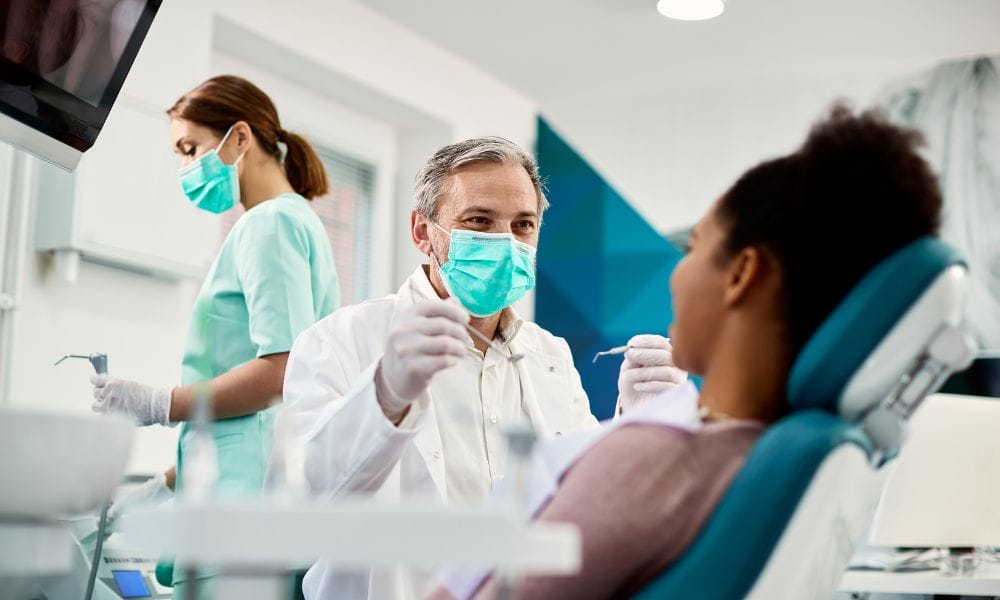Dentists are exposed to many risks in their profession. Understanding common occupational hazards in dentistry and how to manage them is essential to keeping these medical professionals physically and mentally safe. Here are four hazards that dentists commonly encounter and what they can do to minimize adverse effects.
Viruses & Pathogens
Dentists regularly come into contact with blood and saliva. This puts them at high risk for contracting viruses and dangerous bloodborne pathogens such as HIV, hepatitis, and COVID. Wearing proper PPE, including gloves and a lab coat, can minimize contact with bodily fluids and reduce the risk of contracting diseases.
Exposure to Radiation
Dental X-ray machines and tools that emit ultraviolet light expose dentists to ionizing and non-ionizing forms of radiation. Long-term exposure can cause a variety of problems, ranging from mild concerns (hair loss, headaches, and nausea) to severe conditions (cancer and cardiomyopathy). Utilizing radiation shielding, reducing exposure time, and increasing distance from radioactive tools or machinery can minimize the amount of radiation the body absorbs.
Allergies & Asthma
Gloves and polymer tools can trigger allergy symptoms in dentists allergic to latex. Contact with acrylate compounds or dust can worsen asthma symptoms. Swapping out latex for nitrile gloves, wearing protective face masks, and taking allergy or asthma medication as prescribed can minimize symptoms and discomfort.
Chronic Back Pain
Dentists frequently work in strained, upright positions, which can weaken the spine and tissues in the lower back and cause chronic, unrelenting pain. Performing dental work in an adjustable chair or wearing a back brace for additional support can take a load off the spine and ease pain.
Dentists face numerous hazards in their day-to-day work. By getting familiar with the common occupational hazards in dentistry and how to handle them, dental professionals can perform their job and aid patients without worrying about their own health and safety.








